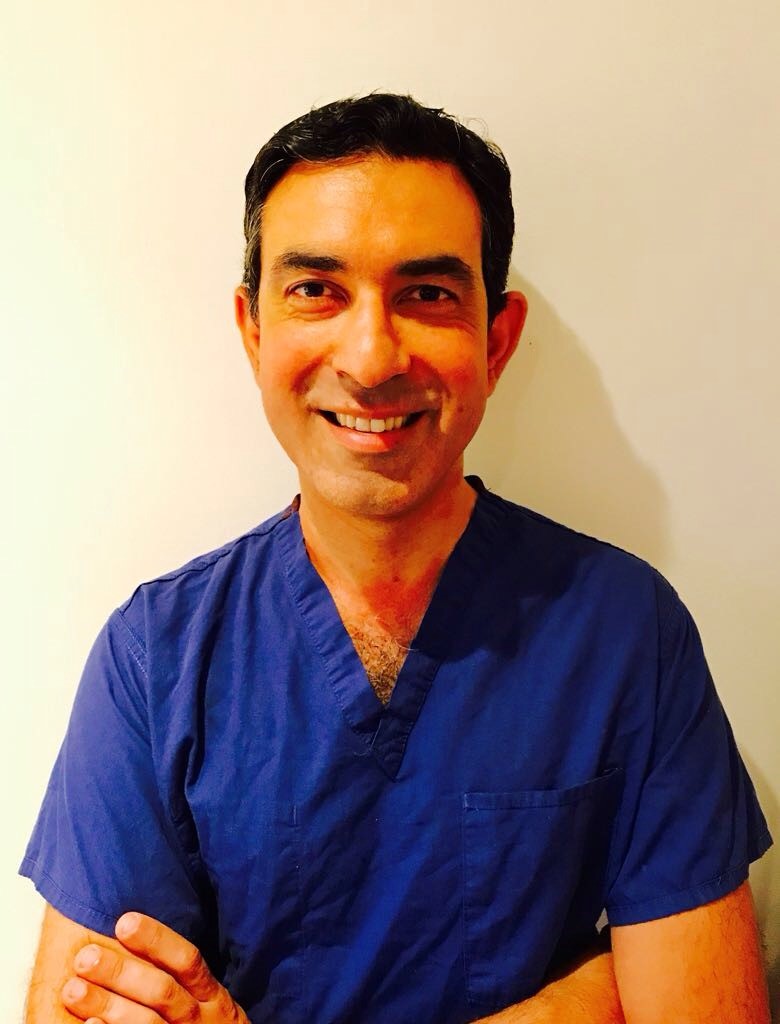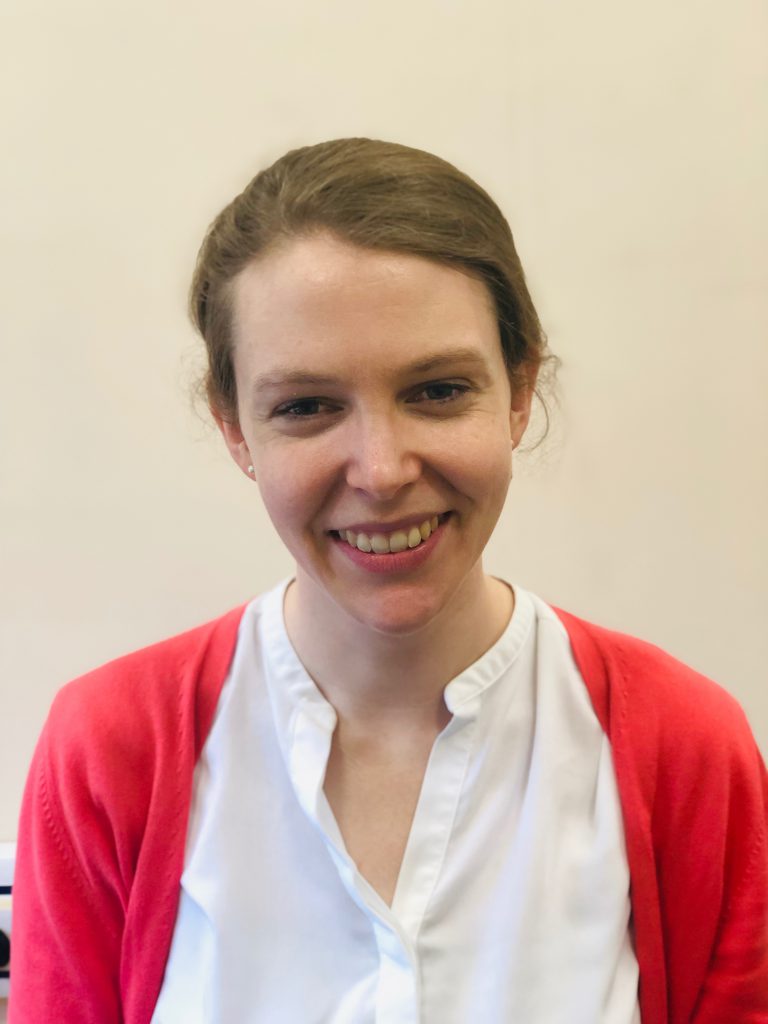 Professor Bijan Modarai is the King’s Chair in Vascular Surgery and a British Heart Foundation (BHF) Senior Clinical Research Fellow. He completed his Basic Surgical Training in London before being awarded a BHF Clinical PhD Studentship in 2002. He graduated with a PhD in Biochemistry in 2006 and completed his Higher Surgical Training as an NIHR Academic Clinical Lecturer at King’s and as an Endovascular Fellow at The Royal Prince Alfred Hospital in Sydney. He was appointed as a Senior Lecturer in Vascular Surgery at King’s and Honorary Consultant Vascular Surgeon at GSTT in 2012, having secured a BHF Intermediate Clinical Research Fellowship. He was awarded a Hunterian Professorship by The Royal College of Surgeons of England in 2017.
Professor Bijan Modarai is the King’s Chair in Vascular Surgery and a British Heart Foundation (BHF) Senior Clinical Research Fellow. He completed his Basic Surgical Training in London before being awarded a BHF Clinical PhD Studentship in 2002. He graduated with a PhD in Biochemistry in 2006 and completed his Higher Surgical Training as an NIHR Academic Clinical Lecturer at King’s and as an Endovascular Fellow at The Royal Prince Alfred Hospital in Sydney. He was appointed as a Senior Lecturer in Vascular Surgery at King’s and Honorary Consultant Vascular Surgeon at GSTT in 2012, having secured a BHF Intermediate Clinical Research Fellowship. He was awarded a Hunterian Professorship by The Royal College of Surgeons of England in 2017.
He is a Council member of the British Society for Endovascular Therapy, examines for the Fellowship of European Board of Vascular Surgery and co-leads the GSTT/King’s Biomedical Research Centre School of Translational & Experimental Medicine.
Bijan is the King’s medical lead for INSPIRE, an initiative from the Academy of Medical Sciences that seeks to engage medical, dental, and veterinary undergraduates with research.
Bijan will be joining a panel to discuss the challenges of navigating dual careers as a health professional researcher at our ‘Managing Dual Careers’ series of webinars in April 2021. Book your place via Skills Forge.
We chatted to Bijan about his career as a clinical academic, and in particular his views on enhancing the diversity of the pipeline of future clinical academic leaders.
Bijan, tell us about a typical day (or week) in the life of a clinical academic leader in vascular surgery?
The great thing about being a clinical academic is that no day or week is the same! My role is fully funded by the British Heart Foundation, allowing dedicated time for research and the opportunity to maintain a flexible timetable depending on what the clinical demands are. Clinically, my time involves seeing patients, participating in MDTs (multidisciplinary team meetings), operating, and on call sessions.
Research-wise, I spend my time supervising PhD students, in lab meetings, liaising with national and international collaborators, and forging new collaborations to get new research off the ground. My research team spans basic and translational science, from cell biology in the lab to data-driven clinical research. It’s very much a bedside, to bench, to bedside model. I also spend time reviewing papers, writing grants, and (less so now in the pandemic) attending meetings to present and discuss the research with international colleagues.
One thing that I’d say has helped me in navigating the dual career as a clinician and researcher is focussing my clinical practice to a specific, specialised area. It’s really important not be a jack of all trades clinically as you’ll have no time for research.
Looking back to the early stages of your career, what do you think were the biggest challenges in forging your career as both a clinician and a researcher? What tips did you find helped you overcome these?
Many clinicians are concerned that there’s a perception that if you take time out for a PhD, then you de-skill clinically. Perhaps it’s getting better these days, but when I started it was relatively unusual for an individual in a craft speciality such as mine to take three years out for research towards a PhD. It’s important that Trusts and academia work together to improve this, and that clinical training committees have appropriate expectations for clinicians who are also doing research.
However, a key piece of advice I’d give to clinicians is that in order to have kudos with your clinical colleagues, it’s important to strive hard to ensure you achieve the same, if not better, clinical competencies than your clinical colleagues not doing research. This is an important mindset to have and is achievable with the right prioritisation strategies. I’d encourage any clinician undertaking time out of programme for a research degree to try and carve out flexible time e.g. an afternoon a week, to maintain clinical skills.
What got you interested in research?
In truth, I didn’t set out knowing I’d be a clinical academic. I did an intercalated BSc in medical school, that gave me a taste of research. What really led me into this path was the mentorship and opportunities I was exposed to early on in my early clinical jobs. I had some excellent mentors who encouraged me, and with them I wrote a proposal for a PhD, funded by the BHF. I wasn’t sure whether doing research was the right thing to do, and at that stage there was no defined career path, but then the NIHR IAT programme was created and I was one of the first NIHR-funded surgical ACLs.
The period after a PhD can be particularly difficult to navigate as a clinician. How should clinical PhD students find opportunity to stay engaged in research after their degree?
This is still a huge issue that we need to tackle, namely the lack of opportunities post-PhD to continue driving up research outputs in order to be competitive for clinician scientist or intermediate fellow funding. The way I achieved it was through supervising a PhD student whilst I was an ACL, thereby enhancing the research outputs to be competitive for the BHF intermediate fellowship.
Many clinicians don’t realise that there’s no one size fits all, in the quest to be a clinical academic. In many ways, everyone must forge their own bespoke pathway at every stage. Key to this is the relationships you cultivate, both within the Trust (e.g. your Programme Director) and academic colleagues. You need to bring people on board to help you navigate the pathway. Skills in negotiation, interpersonal skills, all are key and should not be underestimated.
It can be more difficult for those in minority groups to imagine themselves achieving this when there are fewer senior role models who look like them. While things are improving, women and BAME communities are still underrepresented in cardiovascular surgery and in senior clinical academic research. Again, seeking mentorship is key. There are many ways to find mentors outside your immediate clinical or academic environment. For example, social media helps you see what people are interested in and connect with them. Attend talks and events, and crucially, don’t be shy – talk to people afterwards. I remember an inspirational talk I attended from a young Asian plastic surgeon which left a long-lasting impression – this was 25 or 30 years ago. If someone inspires you, contact them, don’t wait, or assume they won’t have the time to respond. It’s flattering to be contacted no matter what level you’re at.
However, it’s certainly not just down to the individual. It’s the responsibility of senior people to seek talent and provide opportunities based on merit, to everyone. We must always be conscious of the balance of opportunities we give people. More senior academics must also highlight examples of successes from those they mentor, and from underrepresented groups in particular. I’d also recommend participating unconscious bias training, to help you think about biases you’re not even aware you have.
What other advice do you give early stage clinical academic colleagues?
You can’t do everything! It’s so important to have focus, and to decide what the priorities are in conjunction with good advice from colleagues. If you’re good, you’ll be approached to do 101 different things, and part of your success depends on filtering those, knowing where your talents are, and where your time is best spent.
You can’t underestimate the importance of having the skills to work in a team, and interpersonal skills to find mutually beneficial opportunities that help you move forward. Always be grateful to those who do help you. Find ways to be part of a supportive, social, non-hierarchical cohort of clinicians and scientists. Don’t be arrogant, know at the early stage that you’re starting from scratch as a researcher, have humility and be the kind of person that others want to see succeed.
